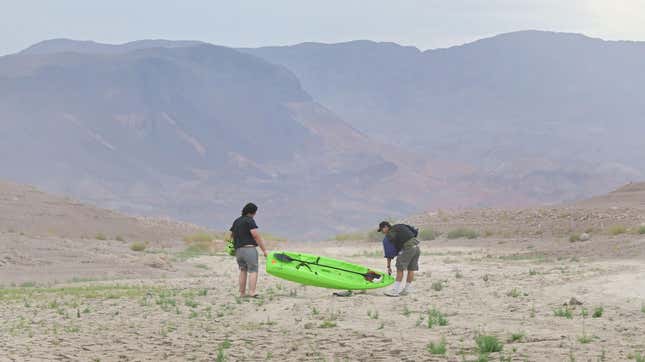
A new map from the U.S. Drought Monitor shows vast areas of the Western, Southwestern, and Central U.S. in dark red and bright red, representing exceptional drought and extreme drought.
Around 50% of the country is now experiencing some form of drought. A combination of elevated temperatures and low precipitation means that more than half of the U.S. has seen these conditions for more than four weeks in a row, CNN reported.
Beyond the extreme drought areas in red, the Drought Monitor maps also shows yellow, tan, and orange to represent dry conditions, moderate drought, and severe drought, respectively.

Early this year, signs of drought had already begun. California officials conducted the annual snowpack measurement on April 1 at Phillips Station, just south of Lake Tahoe, and only found 2.5 inches of snow where there should have been several feet. A megadrought is holding Western states in a chokehold, while several of the most important reservoirs in the country, including Lake Mead and Lake Powell, are at historic lows.
States across the Northeast had less warning. Like regular drought, flash drought is caused by low precipitation. But the combination of little to no rainfall and unusually high temperatures can lead to flash droughts, which are difficult to prepare for. In May, Massachusetts did not report any drought conditions, but by mid-July, 80% of the state experienced moderate to severe drought. New Jersey has also reported flash drought conditions, and residents have been urged to avoid watering their lawns. Several states in the region including Rhode Island, Maine, and New Hampshire are also grappling with flash drought conditions, CNN reported.
Climate change and human activity are contributing to more and more intense droughts. Farmers tending crops and livestock are struggling, and water use restrictions are affecting millions of Americans. Low water levels in reservoirs are also threatening the ability to produce hydropower.